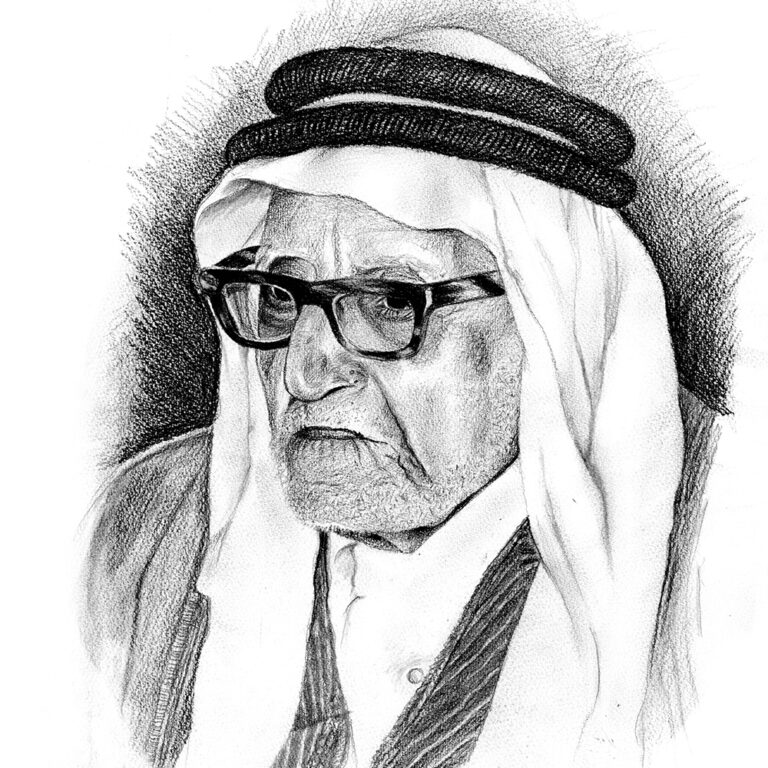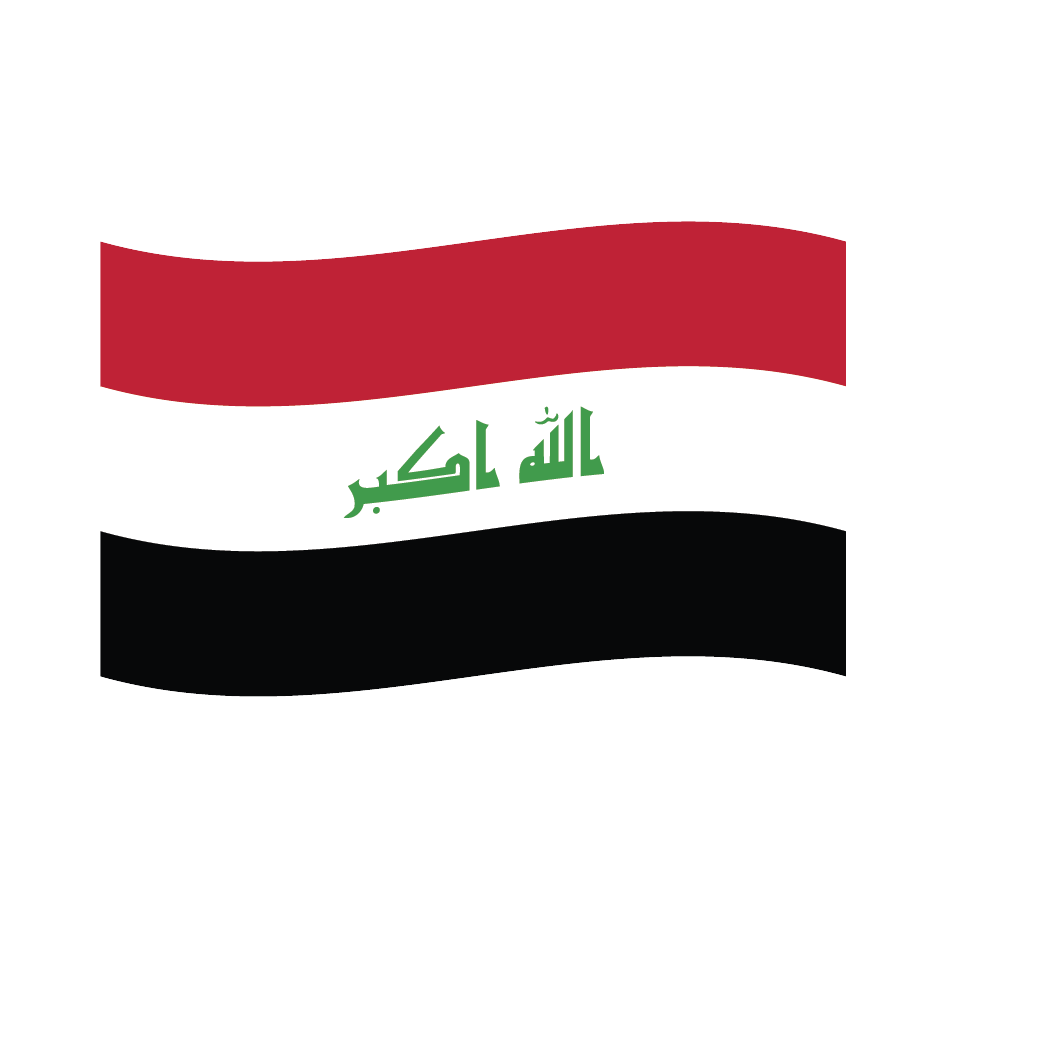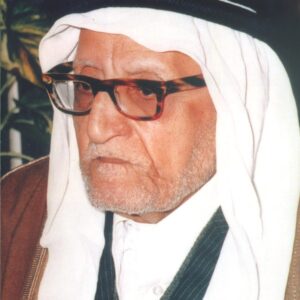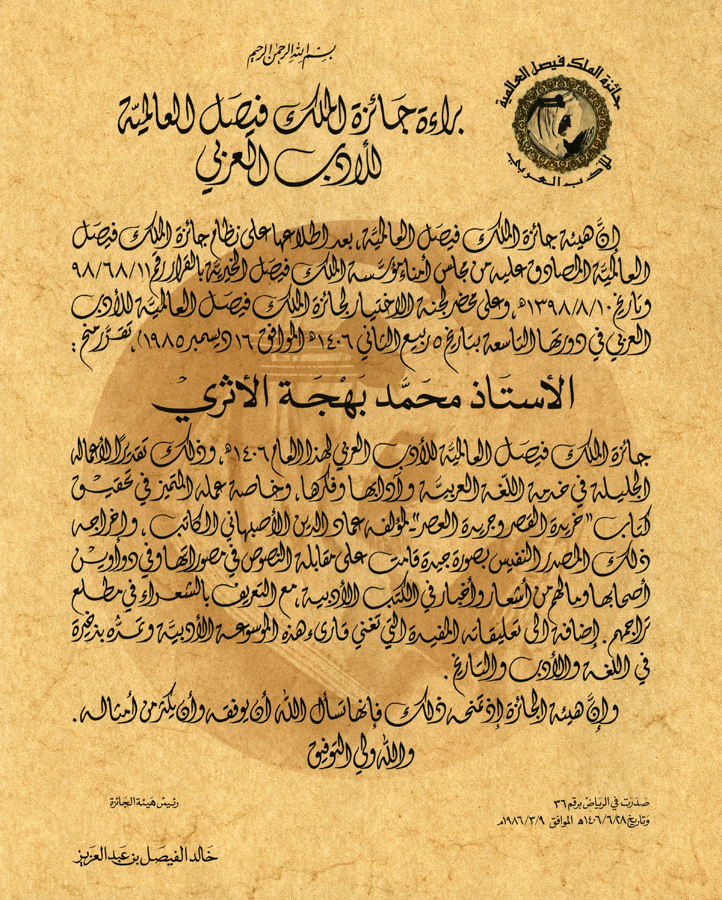

Mohammad Bahjat Al-Athari
King Faisal Prize in Arabic Language and Literature 1986 Laureate
Topic: "Studies on Arabic Literature During the 5th and 6th Centuries A.H."
Poetry suffices to accomplish the goals by way of suggestion and allusion

Mohammad Al-Athari memorized the Holy Quran at the age of 6. In addition to studying Arabic language, literature, and Islamic Sharia in formal Iraqi schools, he privately studied French, English and Turkish languages and was mentored in religion and Arabic language studies by renowned local scholars, including the legendary Shaikh Mahmoud Shukri Al-Alousi, the Mufti of Baghdad. Al-Athari became a teacher of Arabic, then an Inspector of Arabic in the Iraqi Ministry of Education and an Administrative Director in the Ministry of Endowments. In 1951, he was appointed professor of Arabic literature and Ethics in the Police College in Baghdad, beside his responsibilities in the Ministry of Education.
Mr. Al-Athari retired in 1963 to become a full-time writer and scholar of Arabic. He authored numerous books and edited many others on different aspects of Arabic language and arts, including analyses of several early Arabic texts and anthologies, particularly an edition of Imad Ed-Din Al-Asfahani’s Kharidat al-Qasr wa Jaridat al-Asr, a landmark of ancient Arabic prose, poetry, and literary criticism. Mr. Al-Athari also published hundreds of articles and made numerous other contributions not only to the study of Arabic literature but also history and Islamic studies. He was a celebrated poet.
In 1949, he co-founded the Iraqi Science Academy and became its Vice-President and chief editor of its journal. He was also elected to the Arabic Language Academies of Cairo, Damascus and Amman, the Royal Moroccan Academy and the International Advisory Council of Al-Furqan Islamic Heritage Foundation. His life and works were subjects of graduate degrees, and a compilation of his major literary contributions was published by the Iraqi Science Academy.
This biography was written in the year the prize was awarded.
- In 1989, he received the Saddam Hussein prize for literary production.
- Mr. Mohammad Bahjat Al-Athari passed away in Baghdad on 23/8/1996.


